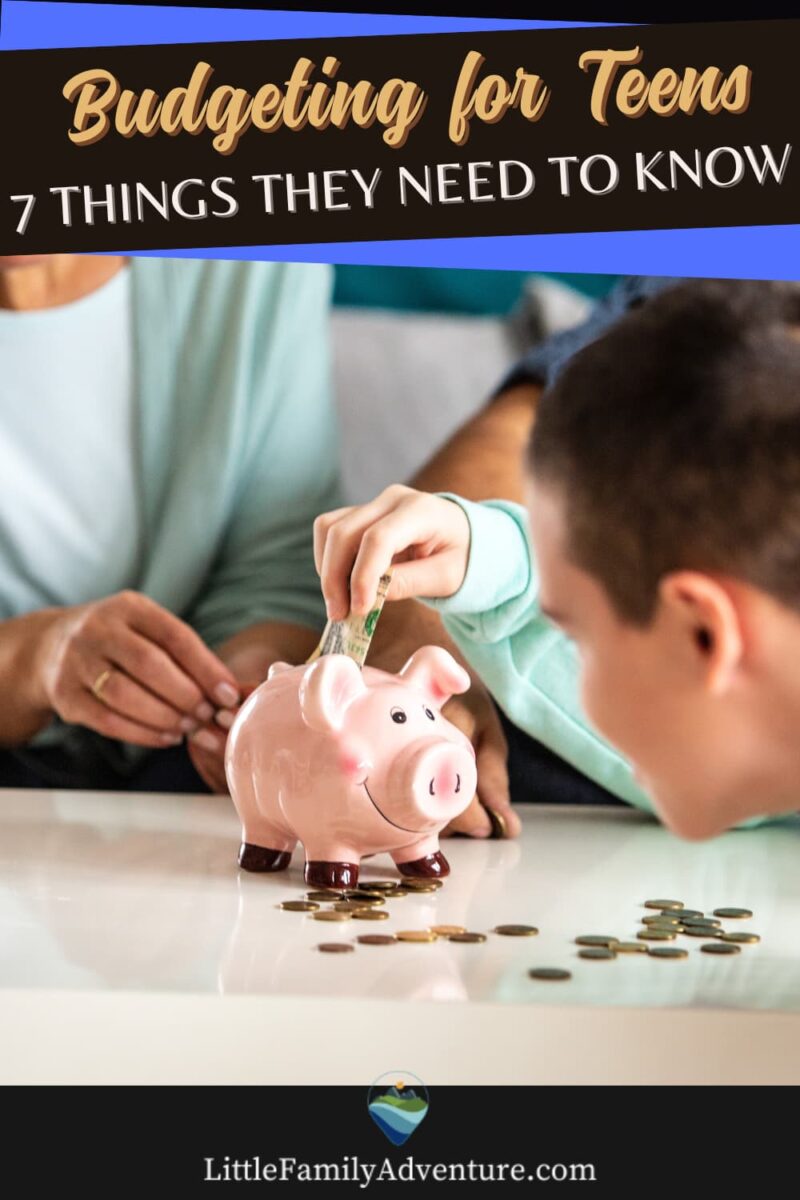Becoming an adult involves making tough decisions. The earlier you start, the better your future will be. While being a teenager is exciting, there are things called responsibilities that can make life more of a challenge. However, it doesn’t have to be. The best way to be successful as young people in the future, you have to set clear goals, come up with a plan, and follow it to the end. Good things don’t happen magically. You have to prepare and work hard to get what you want. This especially applies to money. Millions of adults across the world have not yet achieved financial independence. And this is largely because they didn’t prepare for the future when they were young adults. As a teen, you can easily achieve your financial goals by budgeting. Here’s what you need to know about this process.
1. Know How Much You Earn
Before doing anything else, the first step is you need to figure out how much you make. Whether you are earning from a part-time job, summer job, an online business, or a monthly allowance for helping your parents around the house, you need to add up the amount of money you make every month. Having this number in mind will guide your saving and spending. If you don’t earn a fixed amount of money every month, do the math and always stick to the safe side. If you don’t know how much you earn, it can be difficult to create a budget.
This article contains affiliate links. We earn from qualifying purchases.

2. Create Categories in Your Budget
After knowing how much money you earn, the next step is creating budget categories for each of your financial obligations. There are two main budget categories namely savings and monthly expenses. You need to write down all the expenses that you are going to incur. In the saving category, you also need to record the accounts where your money will be held. Here is an example:
- Saving
- College fund
- Long-term savings goals (new car, travel, etc.)
- Savings account
- Expenses
- Gas
- Car insurance
- Car payment
- Cell phone bill
- Gym
- Clothes
- Entertainment, Concert tickets
- Food,
- Subscription services
- School supplies
If you are living at home, you won’t have to worry about paying the household bills. However, if you are required to contribute, don’t forget to include them in your budget.
Can’t read now? Pin for later!

3. Choose a Budgeting Strategy
With a list of all the required savings and expense categories, you need to figure out how much money you’ll allocate to each area, aka a spending plan. There is a wide range of budgeting methods for you to choose from. Here are a few strategies that you can use to achieve financial independence:
- Pay Yourself First – As its name suggests, this spending strategy involves putting a set amount of money or percentage of your income into your savings account. Leftover money can be spent on whatever you deem fit. Financial experts recommend that you save at least 10 percent of your income. You can increase this amount. However, you shouldn’t strain yourself.
- Zero-based budgeting – Using this method will help you to account for every dollar you earn. It operates on the idea that zero is the result when you subtract expenses from your income. Estimate the cost of every category in your budget until you remain with nothing. Use these estimates as a guide during the month.
- 50/30/20 rule – By using this rule, you’ll get to budget your money based on these percentages: 50 percent of your income covers your necessary expenses, 30 percent covers variable spending and 20 percent goes to your savings account.
If you don’t have a lot of expenses, you should consider increasing the savings percentage.

For more family activity inspiration, check out our latest posts here:
- 40 Best Experience Gifts for Families This Christmas

- How to Wrap Experience Gifts: 15 Creative Ideas to Make Memories Unwrappable

- 19 Essential Gifts for New Puppy Owners That Any Dog Would LOVE

- 20+ Best Food Subscription Boxes to Save You Time & Money

- 23 Must-Have Clothing Essentials to Pack for Winter Travel

- BEST (no-sew) Camping Indoor Playhouse for Kids

4. Save Before You Spend
To achieve your financial goals, it’s always important to save first before you start spending. If you do the opposite, you’ll likely have nothing to save. You need to be disciplined and prioritize saving. You can open a dedicated bank account for spending and separate savings account to help with your personal financial goals. Forming this habit will help you stick to your budget and avoid unnecessary expenses.
5. Set Clear Goals
One of the best ways to motivate high school students to follow a plan, in the long run, is to set clear goals. You might be saving to buy a house, your first car, or study abroad. If you stick to your budget during your teen years and keep up good spending habits, you will realize your goals.
If you are studying economics, you know how demanding it can be. To get good grades, you need to get help with urgent assignments to find time to calculate your earnings. Reading 100+ essays examples in economic for free online will help you stay on track with your study as you focus on achieving your financial independence. Plus, you won’t have to pay a dime to read an economic essay and learn.

6. Make Necessary Adjustments
If your budget isn’t serving you, you can always make adjustments. For instance, if you are always overspending on gas or food, you need to adjust your budget. If you have been paying for gas and you’ve sold your car recently, you need to make the necessary adjustments.
After setting goals and creating your budget, you are going to make mistakes. You might find yourself spending first and having nothing to save or saving less than you anticipated due to your spending habits. Whenever you make mistakes, don’t be too hard on yourself. Instead, take some time to go through your budget and reflect on how you can make better decisions next time. If you are having a hard time managing your money, you should consider seeking help from a trustworthy friend, parent, or professional. By following the tips that we’ve discussed in this article, you’ll achieve financial independence early and live happily.
For more tips from Evelyn, check these out:
- Ways to Combine Online Studying and Traveling in 2022
- 30 Fun Family Fall Activities
- 4 of The World’s Best Travel Literature For Learners
Author’s Bio:
Evelyn Montoy is a professional speaker and academic writer. She spends a lot of time helping teens realize their academic and financial goals. She enjoys coaching college students and making new friends during her free time.



Leave a Reply